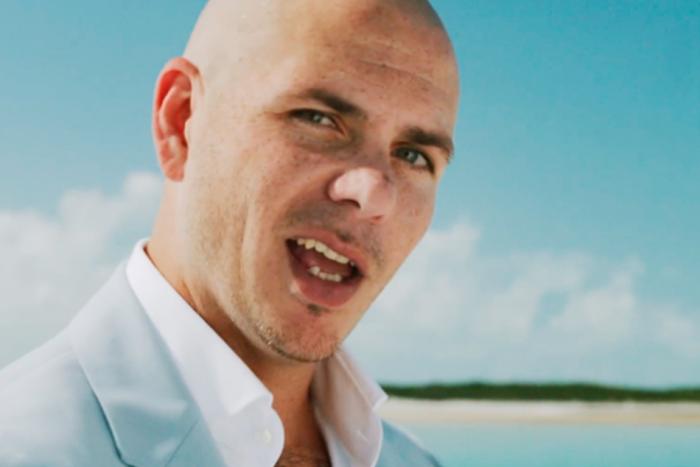Last December, as Beyoncé snuck her new album-cum-anthology-film-cum-oracular-monolith into public view with the kind of uniform secrecy that characterizes amphibious invasions, the 22-year-old rapper Angel Haze handed compilers of year-end lists a more spontaneous dilemma. Three months before the scheduled release date of her debut album Dirty Gold, she leaked it all on Soundcloud: “Sorry to Island/Republic Records, but fuck you.” The MC blamed typical label evasions—she’d recorded an LP, they’d promised to release it by the end of the year, but now her fans were unable to hear it for no good reason Island and/or Republic Records could provide. They relented and indifferently shoved Dirty Gold towards stores on December 30. Although managing to finish an album gave Haze another way to torment the poignant revenant that is Azealia Banks’s career, I suspect she’ll come to value rushing it out for other reasons, because I haven’t heard such an unsatisfying record that I basically like in some time.
Angel Haze got that record deal after a series of engrossing mixtapes, where her fearsomely assertive flow slowed to accommodate tracks like “Cleaning Out My Closet,” describing childhood sexual abuse in plain, unavoidable language. She’s a pansexual virgin and young pro who didn’t even hear secular music until high school, having grown up in a Pentecostal sect she calls a cult: “We all lived in the same community, within 10 minutes of each other … You weren’t allowed to talk to anyone outside of that, you weren’t allowed to wear jewellery, listen to music, to eat certain things, to date people … you weren’t allowed to do pretty much anything.” “New York” claims she runs the place, but she also envisions a home in Montana remote from everything Manhattanite except Chipotle outlets. What first struck me as a contradiction between Haze’s battle-rap boasting and rough introspection eventually just began to sound like the same tenacity.
Did I mention that she sings, too? On Dirty Gold, it’s the talking that’s the problem. On “A Tribe Called Red,” discussing her Cherokee heritage, she says “I don’t identify with that shit, my identity is in the music,” a high-formalist move I sympathize with yet can’t help but find kind of ironic given the number of superfluous, throat-clearing spoken voiceovers surrounding it. Another irony: “A Tribe Called Red” knocks anyway, allowing a beat provided by the titular aboriginal dance crew to be its roiling subconscious. Such subtlety is rare here; too many prolonged speeches introduce bulky choruses, all from the same non-specifically inspirational template. Markus Dravs, who produced most of the album, has little experience with hip-hop—his credits include Bjork, Arcade Fire, and, ominously, Mumford & Sons—and doesn’t front otherwise, sidling up to the pop charts instead. But these beats won’t get Haze there. At several moments one imagines him cackling to a grotesque underling that her transformation into Macklemore is almost complete.
There are many snatches of stronger material left to tantalize, displays of technical skill isolated by all the conceptual hedging. The coherent voice that Haze strives to coax from her disparate styles and inflections only appears confused. The spare handclaps, internal rhymes and lithe bravado of “New York,” which for some reason concludes Dirty Gold’s deluxe edition alone, come as both a thrill and a relief: “No shade and all, but y’all bitches on knees like babies crawl.” A character study of a coke-fixated stripper, “White Lilies / White Lies” is not profound, but it’s not condescending, prurient or dumb, either, and in the songs-about-sex-workers subgenre that’s distinction enough.
“Black Synagogue” leaves the club for a different venue and hue, addressing Haze’s former church with unanswerable prayers. I thought of Killer Mike’s “God in the Building,” and how the phrase “God is in me” never sounded more ambivalent. She describes the fumbling urge to salvage something from a seamlessly repressive religious tradition even after you’ve escaped it, that need for one ragged thread of continuity: “I’ve been listening to service sermons / A lotta redefining, a lot of words reworded / A lotta thoughts detected and thoughts suggested / A lotta stuff that resonates with certain persons.” It’s my favourite song on the album. At seven minutes long, I’d still cut it down.
I would also ask Angel Haze why she bothered signing with a major label in the first place, unless it was to pocket their money while fulfilling the contract as fast as possible—always a noble goal. The era when strange creatures could burrow into a subsidiary of some corporate behemoth and start laying eggs is gone. And their support might not help record pop hits: if a big label doesn’t force an idiosyncratic persona like hers (“female rapper” alone being exotic for certain people) into existing templates, they’ll try and get her pandering until she “transcends hip-hop.” Two or three years ago, Yelawolf was going to be a new Eminem from the other side of the Mason-Dixon; more recently, he’s collaborated with the guy from Rancid and a hobbit. Listening to Dirty Gold, I wondered whether Haze is among those musicians who do their best work in interviews, or catch lightning and manage briefly to sheathe it. Then I listened to the freestyles she put out as a prerelease project called 30 Gold: feminist rejoinders, her superior take on “Wrecking Ball,” a version of “Same Love” that scratches out “in third grade I thought I was gay b/c crayons” and substitutes “at age 13 my mother knew I wasn’t straight / she didn’t understand but she had so much to say.” I don’t envy her immediate commercial prospects, but she’ll outlast them.






